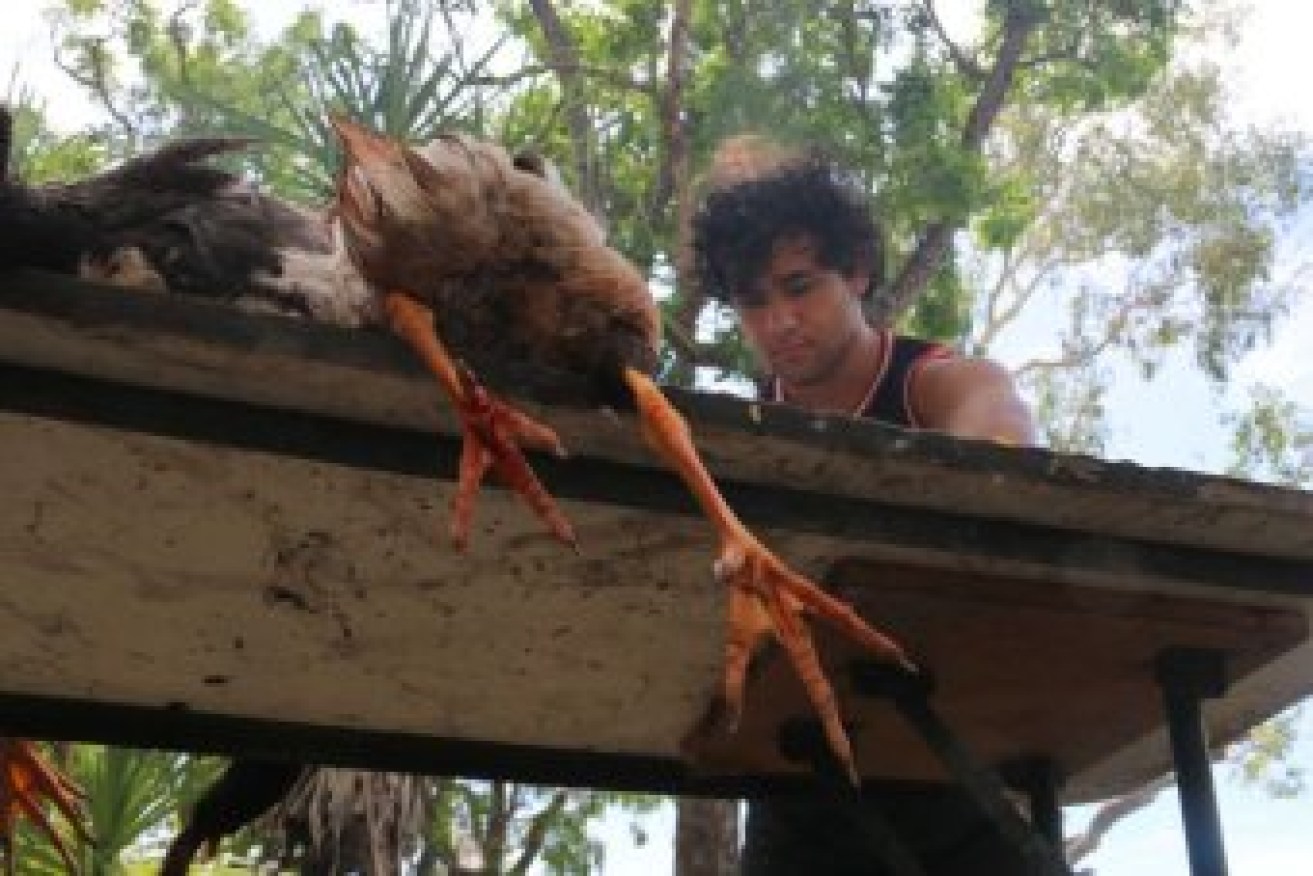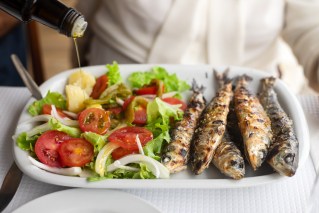Is this Australia’s next popular food trend?

Magpie geese being plucked, ready for export from the Northern Territory. Photo: ABC
Forget kale and quinoa, the next big food fad could be an animal that is considered a pest by Top End farmers.
Magpie geese have a reputation for destroying crops in the Northern Territory, but now some of world’s best chefs are serving them up to their customers.
Culinary royalty like Neil Perry has served it, and Danish superstar chef Rene Redzepi will serve it when he opens a pop-up version of his famous Noma restaurant at Sydney’s Barangaroo later this month.
• Things you didn’t know about cheese
• The ALDI wine winning big awards
• 10-minute meals for an empty fridge
Magpie goose has been eaten by Indigenous people in the Territory for thousands of years and is a staple for modern day hunters in the Top End.
But the story of how it has been rolled out to some of the best restaurants in the country starts with the chance meeting of a Territory-born football star and a provedore of game meat.

Magpie geese being plucked, ready for export from the Northern Territory. Photo: ABC
Daniel Motlop, 33, was playing in the AFL for Port Adelaide when a friend introduced him to Richard Gunner, who provided meat to restaurants.
Mr Gunner had a client who had tasted magpie goose on a visit to Darwin, and was trying to source some more.
“Someone wanted some goose, tasted some goose in Darwin, and it’s all just sort of connected I suppose,” Motlop said.
Mr Gunner said his clients loved the rich flavour.
“It’s something they’ve never had and to them it’s a bit of a revelation. They absolutely love the flavour. It’s not gamey at all, it’s beautiful and delicate,” he said.
At a shed in a small Indigenous community an hour out of Darwin, Motlop and eight other Indigenous people have set up an operation to slaughter, pluck and gut the magpie geese, before sending them south on ice.
It is a fairly efficient operation, taking about an hour to process 20 geese.
The only bottleneck is trapping enough geese to meet the demand. Health regulations mean they have to be trapped, not shot. So far, the geese are proving annoyingly smart.
“At this point in time we could sell 200 to 300 per week easily without too much effort,” Mr Gunner said.








